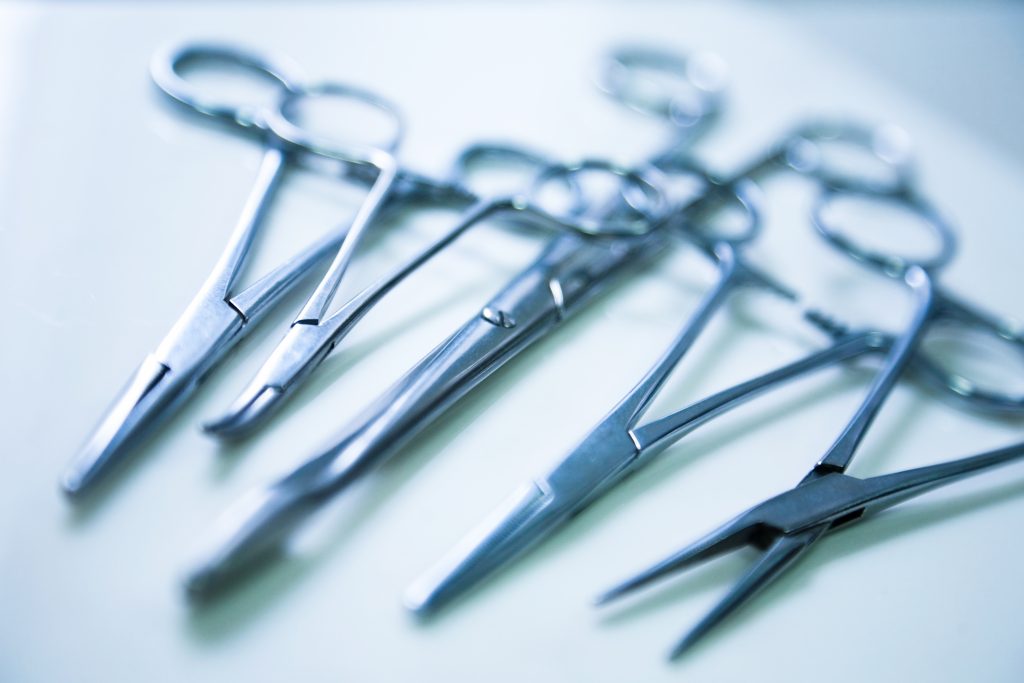Reusable Surgical Equipment
Cleaning reusable surgical equipment is vital. If not cleaned properly, you may spread infection to patients who could potentially have compromised immune systems.
Understanding the cleaning process and why specific procedures are necessary is vital for all staff involved in healthcare settings, so regular training is recommended. Every healthcare setting should also have a nominated lead with responsibility for decontamination.
Classification of medical devices
The cleaning method for an item of medical equipment is dependent on what that particular device is used for.
Critical items typically enter sterile tissue or the vascular system and must be sterilised.
Semi-critical devices come into contact with intact mucous membranes and don’t ordinarily penetrate the skin. They need high-level disinfection.
Any non-critical items are things that don’t touch the patient or only touch intact skin. These can be cleaned by low-level disinfection.
The types of cleaning methods
There are three methods of cleaning surgical and other medical equipment.
Cleaning
This physically removes contamination but doesn’t necessarily destroy microorganisms. An item of surgical equipment may look clean, but it could still be contaminated with harmful bacteria.
Disinfection
By disinfecting medical equipment, you can reduce the number of viable microorganisms on the item. But, it still doesn’t ensure all microbial agents are destroyed.
Sterilisation
This removes all microorganisms from surgical equipment, including viruses and bacterial spores.
How to make the cleaning process safe
The cleaning and decontamination of surgical equipment should be carried out in a controlled manner. This protects staff and patients.
Newly purchased items should always be cleaned and sterilised before use. Also, before purchase, make sure you check that equipment is compatible with the decontamination process you use.
All equipment should be cleaned as soon as possible after use. Not only does it make them easier to clean, but it also prevents equipment from rusting. Blood, saline and iodine are corrosive to stainless steel, and this will cause pitting and rusting, meaning instruments will be unusable. Keep manual washing to a minimum. It should only be used with equipment that cannot be included in an automated process.
It’s recommended you use a washer disinfector to ensure cleaning and disinfecting is carried out correctly. Ensure all automated equipment is in full working order, validated and tested regularly.
Before using a washer disinfector, make sure any equipment made from more than one component is dismantled. This will ensure all parts are thoroughly cleaned.
Washer Disinfectors
Thermal disinfection is the best way to clean medical devices. It’s easy to control, leaves no toxic residue, and is safe for staff.
Washer disinfectors usually have a cycle that begins with a pre-rinse to remove debris. They will then clean, rinse and thermally disinfect surgical equipment.
Disinfection is achieved in water heated between 73°c and 90°c. If any devices cannot withstand that heat, you can use chemical disinfection.
Take care, though. There is more margin for error when using chemicals, and you must follow procedures carefully.
Surgical equipment inspections
Each item should be checked. Staff should look for cleanliness and dryness and remove any items that need rewashing.
They should also be checking for damage. Any scratches or rough surfaces can harbour dirt and germs, making them dangerous to reuse.
How Dekomed can help
We can provide you with a state of the art washer disinfector from Franke Medical Oy. When choosing a washer disinfector, the size and model must be considered carefully. You have to consider the space you have and the machine’s workload. We can help you make the right choice.
We can also help you install the machine and ensure it’s kept in full working order through regular maintenance checks. If you want to automate your cleaning further, we can also help you find the perfect drying cabinet and bedpan washer.
To find out more call us on 0161 483 7333



